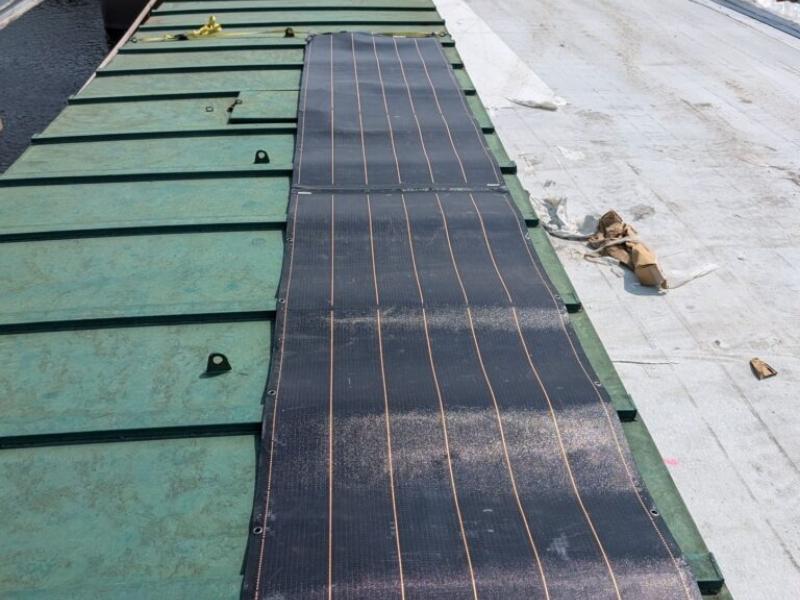 Global real estate investor and operator Ivanhoé Cambridge says it will convert its corporate program of billions of dollars worth of term loans and lines of credit provided by financial partners by indexing them to its ESG performance.
Global real estate investor and operator Ivanhoé Cambridge says it will convert its corporate program of billions of dollars worth of term loans and lines of credit provided by financial partners by indexing them to its ESG performance.
The Montreal-based firm, which held $60.4 billion in real estate assets at the end of Q4 2020, is a real estate subsidiary of the Caisse de dépôt et placement du Québec.
In announcing the “ambitious initiative”, Ivanhoé Cambridge said it is the latest step in its strategy to have a carbon-neutral portfolio by 2040.
The corporate financings represent $8.5 billion to date.
“This initiative enables us to intensify and consolidate our relationships with our financial partners by demonstrating our ability to innovate in terms of sustainable financing,” said Simon Lauzier, chief financial and business performance officer, in the announcement. “This is in addition to the $1.5 billion in green financing we have deployed over the past four years through a wide range of instruments (bonds, loans, etc.).
“We intend to continue our efforts in the years to come by working closely with our financial and banking partners.”
Staff pay tied to ESG goals
In April, Ivanhoe Cambridge indicated its intent to step up its zero-emission push when it announced that it would tie employee and executive remuneration to hitting environmental targets.
Since January, employee pay at Ivanhoe Cambridge has been directly tied to emissions reduction targets as it strives to cut net carbon emissions to zero by 2040 according to Chief Executive Officer Nathalie Palladitcheff as reported in a Reuters story.
“The cherry on the cake has got to be the remuneration,” Palladitcheff told Reuters. “If you incentivize the partners on this criteria, (we’re) pretty sure it’s going to happen.”
“Sustainable investments are profitable”
Ivanhoé Cambridge invests in commercial and residential real estate in Canada and around the world. Through subsidiaries and partnerships, the company holds interests in more than 1,100 buildings, primarily in the industrial and logistics, office, residential and retail sectors.
“We are convinced that sustainable investments are profitable over the long term and we are committed to combining our environmental performance with the continuous improvement of our financing terms,” said Stéphane Villemain, vice president of corporate social responsibility, in the announcement. “Our industry-leading approach to sustainable financing incorporates ESG factors into a number of our capital market transactions.
“These innovative tools ensure that we can finance our operations in a way that is consistent with our corporate vision of having a significant and lasting impact on our communities.”
The key performance indicators (KPIs) Ivanhoé Cambridge uses to improve its extra-financial performance include low-carbon investments, the carbon intensity of its portfolio, and the portfolio’s ESG as measured by the GRESB score.
A solid ESG performance will enable the firm to access better financing terms, while a deterioration of its ESG performance will be penalized.
Part of corporate social responsibility strategy
The firm calls this approach “an integral part” of its corporate social responsibility strategy. One of the key objectives is to achieve carbon neutrality for the entire portfolio by 2040 in line with the Paris Agreement.
Through this initiative to tie financing to ESG performance, Ivanhoé Cambridge is strengthening its pledge to play an active role in promoting new financial practices that respect the environment and sustainable investment.
The CDPQ and 11 North American and European banks have validated the conversion program and made their own commitments alongside Ivanhoé Cambridge. The lending banks are: Bank of Montreal (BMO), BNP Paribas, Citi, Crédit Agricole (CA-CIB), Desjardins, National Bank of Canada, Natixis, Royal Bank of Canada (RBC), The Bank of Novia Scotia (Scotiabank), The Toronto-Dominion Bank (TD) and Wells Fargo.
Ivanhoé Cambridge also intends to continue securing green financing of its properties to accelerate the decarbonization of its portfolio.









